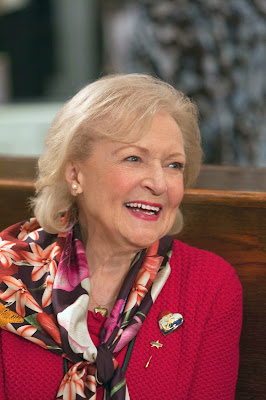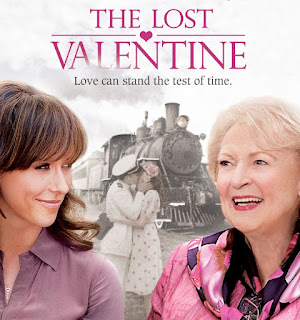
As 2020 comes to a close, some of you may find yourselves feeling weary, wary and downright impatient. You may feel weary from the months of mask-wearing, zooming, and social distancing. You may feel wary that the new administration, despite hope, will solve our 2020 problems. You may feel impatient about money, political divide and how long it will take to get vaccinated.
It’s been a long haul, my friends, and while there may be a visible light or two, we are still in the tunnel. So, what keeps us going when weariness, wariness and impatience are present? Agency. Agency is the art of picking yourself up when you feel kicked down. It is the ability to move forward when life feels like it has moved backward. It entails tuning into what’s bothering you, providing yourself with encouragement and taking action. It requires that you honor your emotions without getting stuck in them. Agency comes from a grounded, parental voice within that reminds you of your value and your ability to make a difference.
Three Steps to Recruiting Agency
1. Define a Problem You Want to Address
This step may be the easiest as our negativity bias has us more aware of what is wrong with our lives than what is right with them. Don’t make this overly complicated or get mired in the details of a situation. Simply list the things you want to make better in your life. Be careful not to dismiss any problems you think are too big or too small.
Take them seriously and take yourself seriously. For example, systemic racism may be a problem that makes you sad, a problem you wish you could impact. Instead of getting lost in the sadness, allowing yourself to feel flattened by the depth of it, put it on the list. Other possible situations that beg attention may be your financial situation, emotional distance in your romantic relationship or better physical fitness. List the problems without judgment so that, later, you can pick where to start.
2. Improve Your Self-Talk
We all talk to ourselves. Some of us are more aware of our internal dialogues than others and some of us are more critical of ourselves than others. Research has shown the way in which you talk to yourself is crucial to your well-being, including your motivation to do something about a problem. If you’ve found yourself repeatedly telling yourself things like, “You’ll never find a good-paying job,” or “You’ve done nothing with all this time alone,” you won’t feel inspired to get off the couch and make positive change in your life.
If, however, you speak to yourself with compassion and encouragement (and when I say compassion, I don’t mean condoning complacency), you will be more likely to apply for that job, study for that exam or volunteer for that organization. Here is an example: Judy is lonely and depressed and worries about climate change. She’s unhappy with herself and the world. So, she decides to improve her relationship to herself by speaking to herself supportively. “It’s been a rough year, Judy, but you deserve better care. Let’s start by walking around the block every day to get you exercise and fresh air. You can do it, even if you feel tired.”
Another technique Judy can use to talk to herself is “self-distancing” or talking about herself. “If Judy spends one hour a week volunteering for that tree-planting organization, she will help reduce the effects of climate change. Judy can make a difference.” Just changing how we talk to ourselves from a critical or cynical voice to a hopeful and encouraging one or from first-person language to third-person language can help us recruit agency.
3. Take Action, One Thing At A Time
In order to follow through on the behaviors that can positively impact a situation, it is vital that you learn self-discipline. Taking action works best when you are consistent. Set reminders in your phone. Time block your schedule for exercise, talking with friends, looking for a job or whatever you decided to affect.
Try not to get into a debate or discussion in your mind about whether or not it’s worth it to follow through on the action, just respond to the reminder bell or time block in a matter-of-fact manner. The phone dings to remind you to work on your resume for ten minutes, bring yourself to the task. Taking action is not about kicking yourself or threatening yourself—that creates stress in the mind and body. Instead, it is about putting an arm around yourself and guiding yourself to the task you set out to do.
When the action is repeated (for example, daily ten-minute meditations to tackle stress), it is more likely to become habit and, therefore, affect permanent change. But please don’t take on too much. One thing at a time will feel less overwhelming and more doable.
How to Affect Change Through Agency: Conclusion
I know we are all tired. We’ve had to navigate perpetually scary and painful circumstances this past year. Some of us had to find stamina when the previous three years had already been challenging. As humans, we have the capacity to be more resilient than we realize. Agency is key to developing resilience. But if you threaten yourself with pessimism and doubt your ability to make change, you’re likely to fall into complacency. Now is the time to offer yourself compassion, pick yourself up with encouragement and take action to improve your life.
References
Hanson, Rick and Hanson, Forrest. (2018). Resilient: How To Grow An Unshakable Core of Calm, Strength, and Happiness. New York: Harmony Books.
Kross, E., Bruehlman-Senecal, E., Park, J., Burson, A., Dougherty, A., Shablack, H., Bremner, R., Moser, J., & Ayduk, O. (2014). Self-talk as a regulatory mechanism: How you do it matters. Journal of Personality and Social Psychology, 106(2), 304–324.










